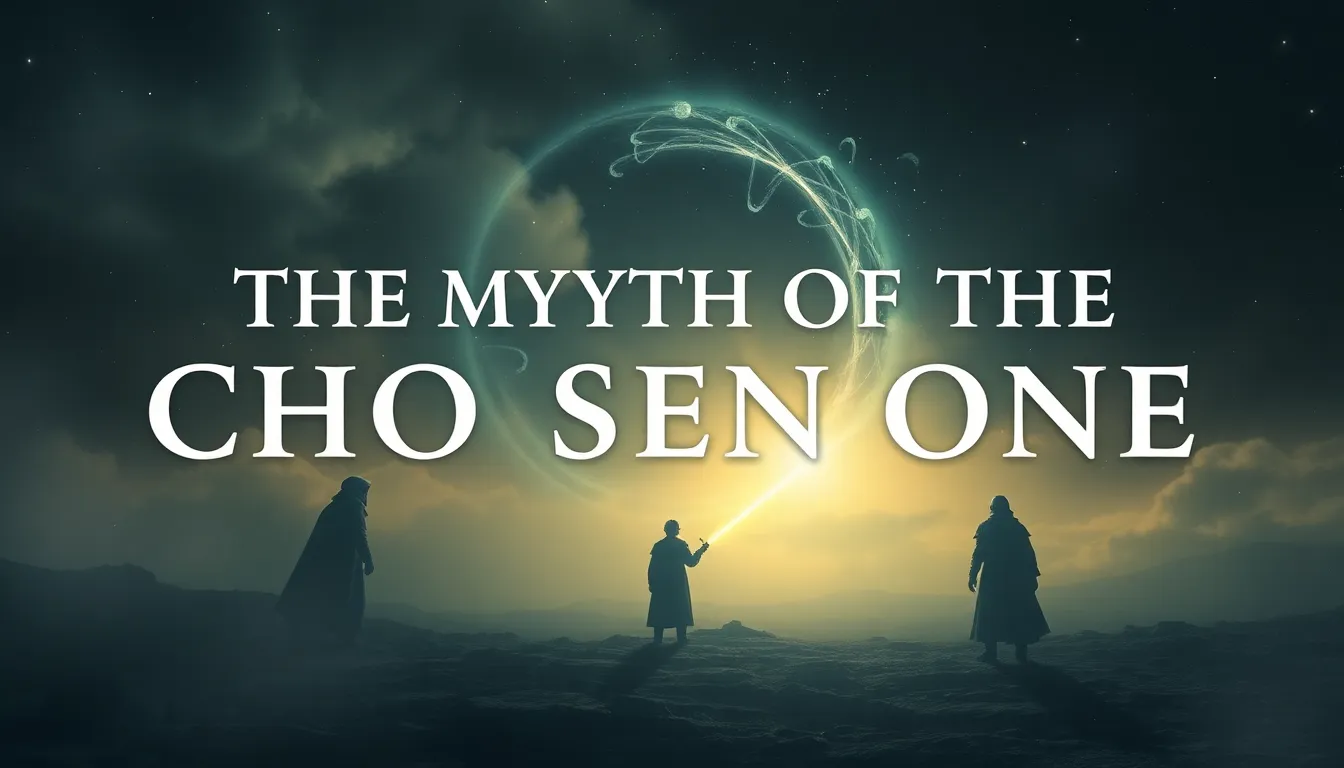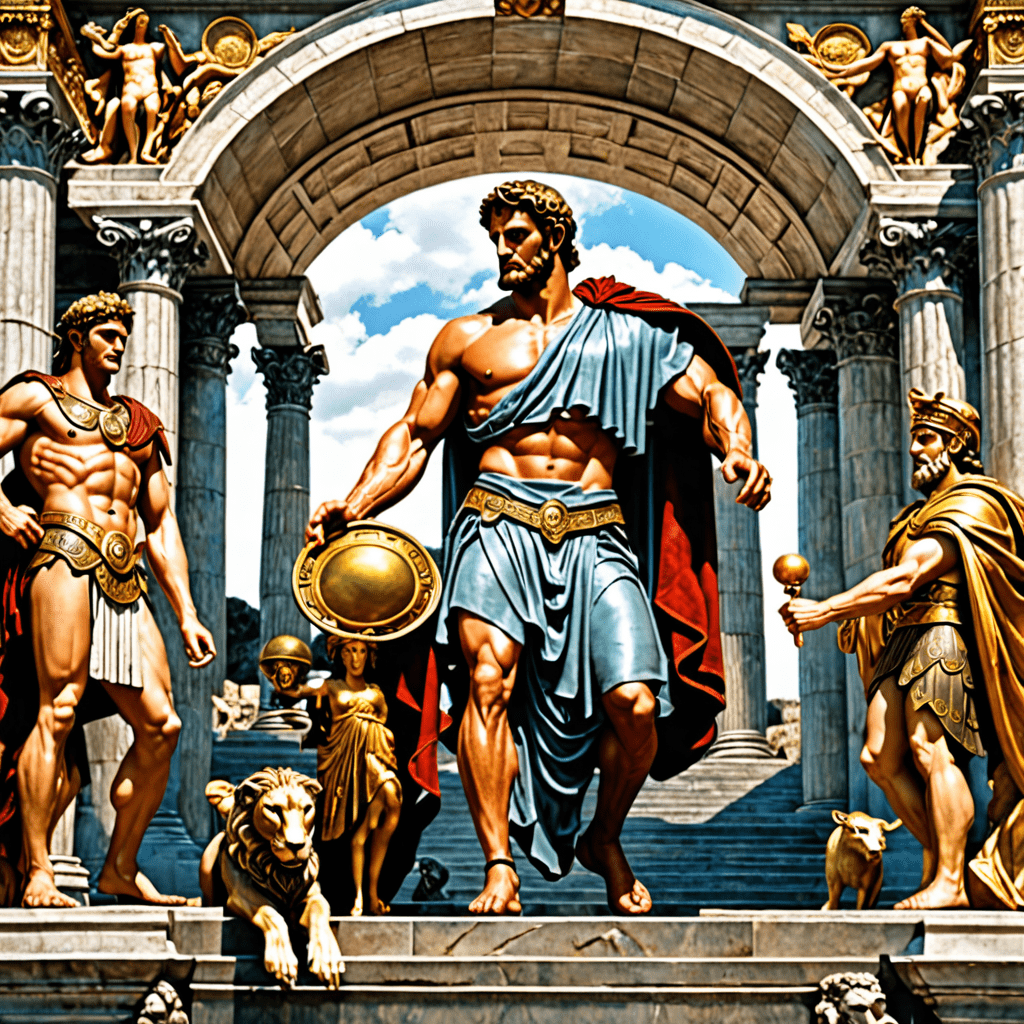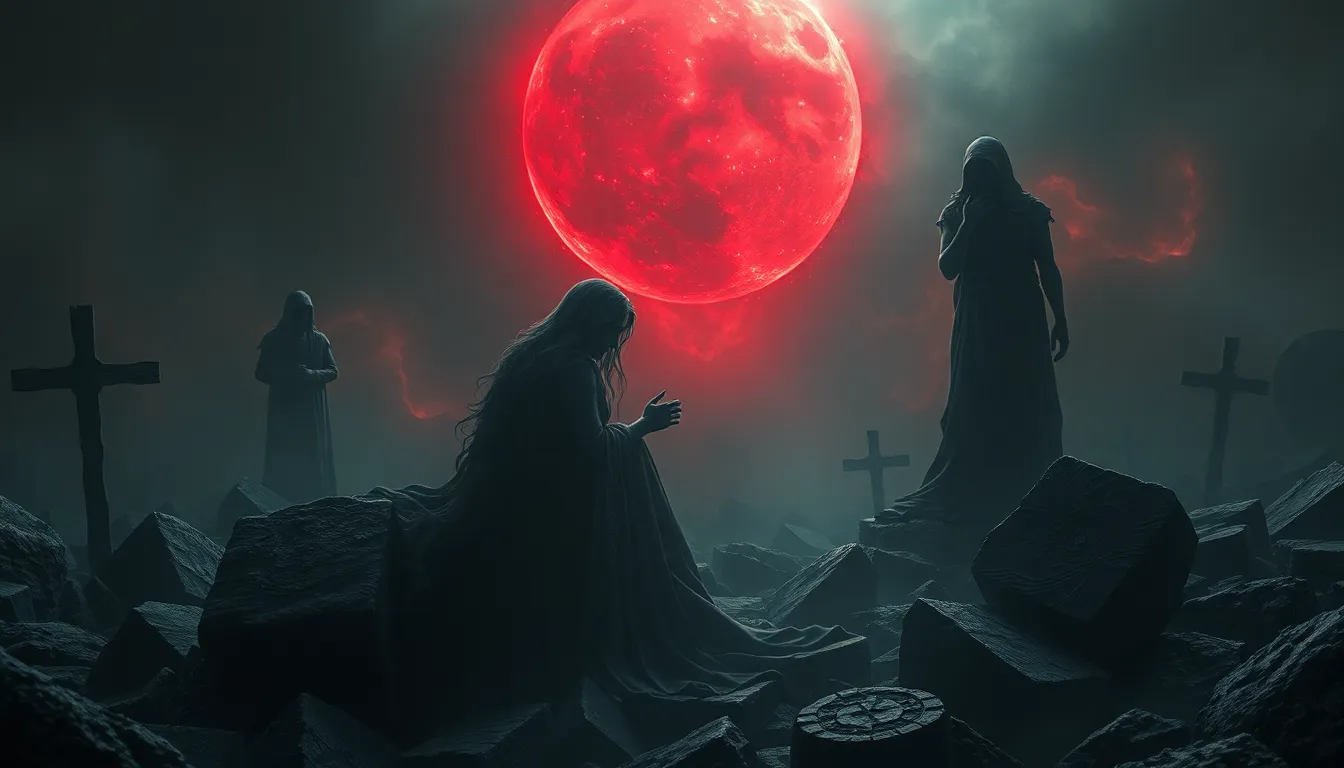The Myth of the Chosen One: Morality in Destiny Stories
I. Introduction: Understanding the “Chosen One” Archetype
The “Chosen One” trope is a prevalent narrative device found across various forms of literature and media, symbolizing an individual destined for greatness or specific tasks. This archetype often embodies a character who is marked by fate to confront significant challenges, achieve monumental feats, or bring about profound change.
Destiny plays a crucial role in storytelling, serving as a catalyst for character development and plot progression. The significance of this archetype lies not only in its influence on the characters but also in the moral implications intertwined with their journeys. By exploring the morality in these narratives, we can uncover deeper themes that resonate with audiences and reflect our societal values.
II. Historical Context of Destiny Stories
The origins of the “Chosen One” mythos can be traced back to ancient myths and legends, where heroes were often prophesied to rise against evil forces. These tales, such as those of Hercules or King Arthur, established a framework where individual destiny was linked to larger cosmic battles.
Over time, the trope evolved through classical literature to modern narratives, adapting to contemporary themes of heroism and moral complexity. From the epic poems of Homer to modern fantasy franchises, the “Chosen One” has become a versatile character type that reflects cultural values and societal expectations.
Cultural variations in the interpretation of destiny also emerge within this framework. For instance, while Western narratives often emphasize individualism, Eastern philosophies may highlight the interconnectedness of all beings and the collective nature of destiny.
III. Common Themes in Chosen One Narratives
Several themes recur throughout “Chosen One” narratives, each with significant moral implications:
- The burden of responsibility: Characters often grapple with the weight of their destiny, leading to questions about their worthiness and the morality of their choices.
- Free will vs. predestination: The tension between a character’s agency and the predetermined path can create complex moral dilemmas that define their growth.
- Sacrifice: The cost of fulfilling one’s destiny often involves loss, whether personal or communal, raising ethical questions about the value of individual sacrifice for the greater good.
IV. Case Studies: Iconic Chosen Ones in Literature and Film
Examining specific characters can illuminate the moral dilemmas inherent in “Chosen One” narratives. Consider:
- Harry Potter: As the Chosen One, Harry faces immense pressure and moral choices that shape his development. His journey explores themes of love, sacrifice, and the importance of choices over destiny.
- Neo from The Matrix: Neo’s awakening to his role as the One forces him to confront not just external enemies but also the philosophical implications of free will versus control. His decisions impact the fate of humanity.
- Katniss Everdeen: As the reluctant hero of “The Hunger Games,” Katniss embodies resistance against oppressive systems. Her moral struggles highlight the complexities of choice in the face of systemic violence.
Each of these characters navigates moral dilemmas that not only affect their personal journeys but also have broader implications for society. Their choices reveal the intricate relationships between individual actions and collective consequences.
V. The Flaws of the Chosen One Narrative
While compelling, the “Chosen One” narrative is not without its flaws:
- Oversimplification of morality: These stories often present black-and-white moral landscapes, neglecting the nuances of ethical decision-making.
- Glorification of individualism: The focus on a singular hero can overshadow the importance of collective action and shared responsibility.
- Minimizing secondary characters: The contributions of secondary characters are frequently diminished, leading to a narrow view of heroism that overlooks collaboration and community.
VI. Alternative Perspectives: Subverting the Chosen One Myth
Some narratives challenge the traditional “Chosen One” trope, offering fresh perspectives:
- The Last Jedi: This film subverts expectations by emphasizing that heroism can arise from anyone, not just a single chosen individual. It highlights themes of failure and redemption.
- Ensemble casts: Stories featuring multiple protagonists often redefine destiny as a shared experience, illustrating that collective heroism can be just as powerful as individual achievement.
These subversions provide moral lessons that encourage viewers to reflect on the nature of heroism and the importance of community in shaping destinies.
VII. The Psychological Impact of Being “Chosen”
The pressure of being labeled as “Chosen” can have profound psychological effects:
- Mental health aspects: Characters often face anxiety and isolation, struggling with the expectations placed upon them.
- Impact of expectations: The burden of fulfilling a predetermined role can lead to significant character development, often resulting in internal conflict and growth.
- Real-life parallels: Society’s tendency to elevate certain individuals as “special” can create unrealistic expectations, impacting their mental well-being.
VIII. The Role of Morality in Shaping Destiny
Ultimately, moral decisions play a critical role in shaping the destinies of characters:
- Creating alternate paths: The choices characters make can lead to divergent outcomes, demonstrating that destiny is not fixed.
- Interplay of morality and success: Characters who uphold moral integrity often find greater fulfillment, suggesting that true success is intertwined with ethical considerations.
- Implications of moral failures: When characters fail to act ethically, they often face dire consequences, reinforcing the idea that morality is central to the journey of the “Chosen One.”
In conclusion, the “Chosen One” archetype serves as a powerful narrative device that explores the complex interplay between destiny and morality. By examining its historical context, common themes, and the psychological implications for characters, we gain a deeper understanding of how these stories resonate with audiences and reflect broader societal values. Through both traditional and subverted narratives, we can appreciate the nuances of heroism and the moral responsibilities that come with being “Chosen.”



